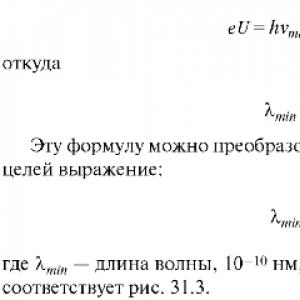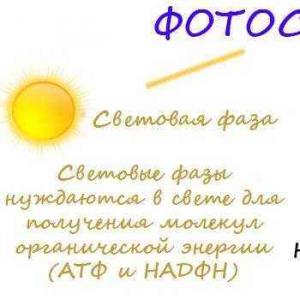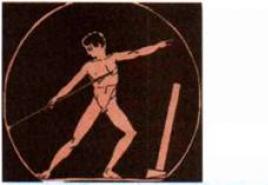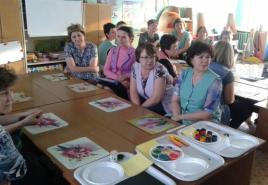Homographs. Homographs and homophones What are homographs examples
The Russian language is a complex, vibrant, extremely diverse phenomenon. This applies to all its levels. Particularly interesting phenomena can be observed in it at the level of phonetics, vocabulary and grammar. These layers, first of all, will tell us in the most complete form about the changes that occur verbally and over time, under the influence of events taking place in society. If archaeologists obtain information about “the affairs of bygone days” by dealing with artifacts, then linguists do the same work by studying the life of the word.
Lexical inversions
Vocabulary is perhaps the most mobile layer of language. More than other branches of philology, it is directly connected with speakers, with live communication. That is why the lexical composition of the Russian language is so rich, multifaceted, and diverse. In addition to traditional synonymous and antonymic groups that enter into complex correlative relationships with each other, linguists have identified another broad community of words called homonyms. It is extremely heterogeneous; its lexical units themselves form several separate branches. These, in addition to homonyms themselves, are homophones and homographs, examples of which we have to look at.
Definition of the concept
The term came to us from and literally translates as “spelled the same way” or “I write the same way.” What does it mean? And the fact is that homographs are examples of words that have a similar graphic design, but are pronounced differently and do not coincide in their lexical meaning. The difference in pronunciation is mainly due to the mismatch of stress positions or phonetic and grammatical laws. The most famous homographs, examples of which clearly demonstrate this difference, are the words za"mok and zamo"k, and "tlas and atla"s and others.
Explaining to children

Vocabulary is studied in detail at school in the 5th grade, and then children purposefully do not return to the material covered until the final exams, when they need to remember and systematize all their knowledge. The same cannot be said about other language sections. Therefore, it is important that schoolchildren initially understand well and easily classify different types. When explaining in class what homographs are, the teacher should analyze their examples in detail, following the principle “from simple to complex.” That is, first he explains it himself, then asks his students to do the same. It is very important to give words a lexical interpretation while going through the topic. Only then will the assimilation of the material be strong and the memorization conscious.
Contextual environment

Therefore, when understanding the theory, from a methodological point of view, it would be more correct to give more than single homographs - examples of phrases with explanatory words will be much more clear. If the teacher writes on the board the phrases “ancient castle, medieval castle, stone castle, castle with high towers, royal castle,” it will be completely clear to the children that we are talking about an architectural structure, a residential building, etc. Next, they can write down 1-2 suitable sentences with homographs. Examples: “A formidable medieval castle towered on a high hill. It was surrounded by an impregnable stone wall." And now the homograph: dodgy lock, padlock, broken lock, zip lock. Children will immediately recognize that these examples refer to a mechanism for closing something. And they will be able to continue the series themselves: “Dad put a new reliable lock on the door. Now we don’t have to worry about the safety of our apartment.” If the teacher returns to this material from time to time during classes in subsequent grades, this will have a beneficial effect on the language practice of schoolchildren.
Close, but not identical
Naturally, it is difficult for a child to retain in his memory all the information he received during his apprenticeship and convey it in its original form for exams. The first thing he begins to get confused with when the material on lexicology loses its relevance is what homographs and homophones are (synonyms and antonyms, homonyms are remembered more firmly, because their differentiated features are more clearly expressed). The phenomenon of homophony is based on sound proximity (“background” - sound).

Yes, these words are often also spelled the same (not always!) But their stress is the same, while homographs do not. Homophones are: onion - plant and onion - weapon, braid - hair and braid - agricultural implements, flu - disease and mushroom (different graphic shell with the same phonetic design!) - plant.
Systematization of homographs
Linguists began to seriously study the problem of homography of the Russian language in our 21st century. Until this time, this linguistic phenomenon was considered very superficially. In modern philology, in addition to graphic homographs (i.e., in their pure form), the following are distinguished:
- words that are spelled the same way and belong to the same part of speech, for example, flour" and mu"ka;
- comparable words with different part-speech affiliations: zvonok and zvonok;
- situational homographs: in Ko "li - if".
A variety of tasks with an entertaining twist will help schoolchildren penetrate deeper into the mysteries of Russian vocabulary and understand its features. And you definitely need to teach them to use dictionaries, including a dictionary of homographs!
). Homographs can refer to both words that have different meanings and different forms of the same word.
Homographs in Russian
In Russian, homographs often arise due to the fact that stress can be placed on different syllables. For example,
Castle - castle
Another common reason for the appearance of homographs is the optionality of writing a letter. For example, if you omit the dots above the letter е, then the following words will become homographs:
Everything - everything is damn - damn
Homographs can be either completely different words or words with the same root:
Roast - hot compass - compass excited - excited expert - expert
Homographs in other languages
In English, homography arises in particular due to nouns that are derived from many verbs as a result of stress shifting to the first syllable (English). Initial-stress-derived noun ). For example,
conflict(verb “conflict”) - conflict(noun "conflict")In addition, in English there is quite a frequent situation when homographs can arise not only because of different stress. For example:
- read ˈ riːd(verb “read” in the present tense) - read ˈ rɛ d(the verb “read” is in the past tense).
In Portuguese, it is common for homographs to arise due to differences in the opening or closing of a stressed vowel. Eg:
- port. sede(with closed pronunciation of the stressed vowel - “thirst”) - port. sede(with open pronunciation of the stressed vowel - “center”, “residence”)
Write a review about the article "Homographs"
Notes
see also
Links
- Golev, N. D.. Let's practice languages.
- Grebeneva, Yu. N.. Culture of writing.
An excerpt characterizing Homographs
The Battle of Borodino, with the subsequent occupation of Moscow and the flight of the French, without new battles, is one of the most instructive phenomena in history.All historians agree that the external activities of states and peoples, in their clashes with each other, are expressed by wars; that directly, as a result of greater or lesser military successes, the political power of states and peoples increases or decreases.
No matter how strange the historical descriptions are of how some king or emperor, having quarreled with another emperor or king, gathered an army, fought with the enemy army, won a victory, killed three, five, ten thousand people and, as a result, conquered the state and an entire people of several millions; no matter how incomprehensible it may be why the defeat of one army, one hundredth of all the forces of the people, forced the people to submit, all the facts of history (as far as we know it) confirm the justice of the fact that greater or lesser successes of the army of one people against the army of another people are the reasons or, according to at least significant signs of an increase or decrease in the strength of nations. The army was victorious, and the rights of the victorious people immediately increased to the detriment of the vanquished. The army suffered defeat, and immediately, according to the degree of defeat, the people are deprived of their rights, and when their army is completely defeated, they are completely subjugated.
This has been the case (according to history) from ancient times to the present day. All Napoleon's wars serve as confirmation of this rule. According to the degree of defeat of the Austrian troops, Austria is deprived of its rights, and the rights and strength of France increase. The French victory at Jena and Auerstätt destroys the independent existence of Prussia.
But suddenly in 1812 the French won a victory near Moscow, Moscow was taken, and after that, without new battles, not Russia ceased to exist, but the army of six hundred thousand ceased to exist, then Napoleonic France. It is impossible to stretch the facts to the rules of history, to say that the battlefield in Borodino remained with the Russians, that after Moscow there were battles that destroyed Napoleon’s army.
After the Borodino victory of the French, there was not a single general battle, but not a single significant one, and the French army ceased to exist. What does it mean? If this were an example from the history of China, we could say that this phenomenon is not historical (a loophole for historians when something does not fit their standards); if the matter concerned a short-term conflict, in which small numbers of troops were involved, we could accept this phenomenon as an exception; but this event took place before the eyes of our fathers, for whom the issue of life and death of the fatherland was being decided, and this war was the greatest of all known wars...
In the last issue we talked about homonyms, i.e. words that, although they have different meanings, are the same in form. But form in Russian (as in any other written language) has two sides: sound and spelling. It also happens that only the spelling is the same but the pronunciation is different - then we are dealing with homographs, or graphic homonyms. If words with different spellings are pronounced the same way, then we have before us homophones, or phonetic homonyms. Homographs and homophones are quite widely represented in the Little Bear problems.
HOMOGRAPHS
One of the main reasons for the appearance of homographs in the Russian language is different stress: forty - forty, you "carry - take out". Homographs also arise due to the fact that texts usually do not dot the yo, For example: sky (sky And sky), let's eat (let's eat And let's sing), loan (loan And loan). Homographs of another type are very rare in Russian.
Homographs can have the same spelling in all forms of a word: organ – organ, ugly - ugly. Much more often, homographs coincide only in certain forms.
We offer problems from Little Bear on different types of homographs.
1. How many verbs from the list above can be stressed differently: subtract, read, scatter, redeem, redeem, cut, cut off?
(A) In three; (B) in four; (B) in five; (D) at six; (D) at seven.
Solution. There are different ways to put emphasis on five verbs from the list: subtract, redeem, cut out(on the first or third syllable), scatter, cut off(on the second or third syllable). In the remaining verbs read And bathe stress can only be placed on the third syllable. Answer:(IN).
2. How many nouns from this list will undergo changes in declension if the stress is transferred from the first syllable to the second: squirrels, castles, panties, floors, mugs?
Solution. Nouns whites, floors(at clothes) mugs with stress on the first syllable are feminine and in the genitive plural will have a zero ending: protein, floor, mugs. If we put the emphasis on the second syllable in these words, we will perceive them as masculine nouns and use them in the genitive plural with the ending -s: proteins, floors, circles. Thus, in these words, when the stress is transferred, changes in declension occur.
Word underpants with stress on the first syllable is an animate noun, with stress on the second - inanimate. Consequently, these words have different accusative plural forms: I see cowards But I see panties. There is a similar difference in the words already discussed squirrels And squirrels": I see squirrels, But I see squirrels.
A couple left for "locks - locks". Both are masculine nouns, inanimate, and declined the same way.
If we turn to singular forms, our conclusions will not change. So, in four words from the list (squirrels, panties, floors, mugs) there will be changes in declension when the stress is transferred from the first syllable to the second, and in the word locks it does not lead to a change in declination. Answer:(G).
3. How many imperative verbs are there: shallow, strands, salt, perch, binge, parrot are they written the same way as nouns, but have a different accent?
(A) 2; (B) 3; (AT 4; (D) 5; (D) 6.
Solution. The first four verbs have the same spelling as plural nouns. or wine case, but for nouns the stress is on the first syllable, and for verbs - on the last (these are homographs that were required to be found). The last two verbs coincide with singular nouns. numbers both in spelling and pronunciation (these are homoforms). Answer:(IN).
4. There are words that are spelled the same, but are pronounced differently and have different meanings, for example, mug And mug". How many such words are in the list: standing, flour, grief, snake, cotton, village?
Solution. In the above list, homographs are standing And standing, flour And flour", go"re And grief", snake And snake", cotton" pcom And cotton"m, village And village". Answer:(D).
5. Given four sequences of letters: cut, roads, districts, from afar. Which of them can be read with stress on any syllable so that in all cases the correct Russian word is obtained?
(A) Cut; (B) roads; (IN) districts; (G) from afar; (D) none.
Solution. There are three different ways to read a combination of letters districts: about the circle– this is the genitive case singular. numbers from a word district (voters of our district), district"- them. and wine plural cases numbers of the same word (electoral districts of our region), finally, surrounding area- about the same as neighborhood (the whole neighborhood is excited). Each of the remaining words is read only in two ways: you "cut - cut" to "horns" – dear, and "away" – from this place. Answer:(IN).
 6.
How many words from this list contain the letter e
can be read as e
, And How e
: drove, chalk, sat down, donkey, business?
6.
How many words from this list contain the letter e
can be read as e
, And How e
: drove, chalk, sat down, donkey, business?
(A) 1; (B) 2; (AT 3; (D) 4; (D) 5.
Solution. And with e , and with e you can read the following words: chalk(noun) – chalk(verb form to sweep), sat down(verb form sit down) – villages(noun in r.p. plural), donkey(verb form settle down) – donkey(noun). The only reading option is in words led (= led) And affairs. Answer:(IN).
7. How many of the words below contain the letter e can be read as e , And How e: takes, vest, lives, ban, scrapes?
(A) None; (B) in one; (B) in two; (D) in three; (D) at four.
Solution. And with e , and with e You can read two of the following words: beret(noun) – beret(verb form take), ban(noun) – ban(verb form lock up). The remaining words have only one reading option: with e (lives, scratches) or with e (vest). Answer:(IN).
Homophones appear as a result of the operation of phonetic linguistic laws. There are quite a lot of homophones in the Russian language, primarily due to the identical pronunciation of vowels O And A; e , I And And in an unstressed position, for example: blew O- blew A , etc e happen - pr And to happen, dedicated e to dedicate - to dedicate I tit and so on. The second reason is the law of regressive assimilation in terms of voicedness/voicelessness (similarity of a consonant in terms of voicedness/voicelessness to the previous consonant of the word), as well as the obligatory deafening of voiced consonants at the end of a word: back and forth and ku - back and forth w ku, ara b ka-ara P ka, sir b– sir P, gru building b – gr st b, ro G– ro To, prue d– pr T. Homophones can also arise due to the fact that the letter b at the end of a word after a sibilant it has only a grammatical meaning and does not affect pronunciation in any way. There are often cases when the infinitive and the 3rd person form of the same verb are pronounced the same way: decide there is– decide tsya, build there is- build tsya, wildebeest there is- wildebeest tsya, I'll return it there is- I'll return it tsya. Sometimes two words have the same sound due to the presence of unpronounceable consonants in one of them: braid T ny – inert. The reason for the appearance of some homophones is the pronunciation of the sound [v] in place of the letter G in the form of kind. adjective case: sharp Wow– sharp ova, Tolstoy Wow– Tolstoy ova, wide Wow– Wide ova. Common and proper nouns that sound the same differ in the spelling of the first letter: V era – IN era, n clothes - N clothes, l love - L love, V ena – IN ena, R Oman – R Oman, A mp - A mp.
The proposed problems deal with different types of homophones.
8. The word forms are given: clouds, lies, shower, tusks, crying. How many meaningful words will you get if you add a letter to each given word? b?
(A) 1; (B) 2; (AT 3; (D) 4; (D) 5.
Solution.Lie And mascara– feminine nouns of the 3rd declension, cry– imperative form of the verb cry, but here are the words *cloud And *soul not in Russian. Answer:(IN).
9. The verb forms given are: eat, eat, skewer, set fire, cry. Which of them have homophone nouns?
 (A) Everyone; (Boo eat, set fire And cry; (B) at will eat And I'll eat; (G) I'll eat And spit; (D) only cry.
(A) Everyone; (Boo eat, set fire And cry; (B) at will eat And I'll eat; (G) I'll eat And spit; (D) only cry.
Solution. Forms have homophones will eat, set fire And cry: these are nouns congress(combination building at the end of the word it is deafened!), arson And cry. Verb ve"rtel and noun vert"l differ in stress, verb I'll eat and noun I'll eat– root vowel. Answer:(B).
10. Comedian Andrei Knyshev in his book “Also a Book” thanks several “colleagues” for their help. Here are some of them: Abram Yakovlevich Self-Deception, Ariadna Nitkina, Astafy Sergeevich Domoboev, Iya Markovna Strakholudina, Naum Coming, Orest Domashny. Let's write down all these last names, first names and patronymics with a small letter. How many common nouns will there be in the resulting list?
(A) Two; (B) three; (At four; (D) five; (D) six.
Solution. There are two common nouns: self-deception‘self-deception’ and fearman‘bogeyman’. Coming- this is a participle home– adjective, word mind written separately from the preposition on, like the word house- from the word wallpaper, and in the word arrest the first letter is not the same as in the name Orestes. Answer:(A).
Finally, we propose a problem, for the solution of which it is necessary to separate homographs and homoforms that satisfy its condition from homophones that do not satisfy it.
11. Word village can be classified as verbs (the sun has set) same goes for nouns (here is a large village in the distance). Which of the following five words can be classified as more than one part of speech:
1) will make you angry, 2)angry, 3) will amaze, 4) feat, 5) smog?
(A) 3, 5; (B) 2, 3, 5; (B) 2, 4, 5; (D) 2, 3, 4, 5; (D) everything.
1, 2, 6–8 – E. Muravenko; 3 – K. Knop; 4 – P. Arkadyev; 5, 9 – I. Itkin; 10 – B. Iomdin; 11 – L. Fedorova.
What are Homophones?
Homophones are translated from Greek as homós - identical, and the sound means phōnē. In simple terms, this is a type of words that have the same sound, but are written differently. Often called phonetic homonyms. In the language (Russian), the same sound is often caused by peculiarities of pronunciation - deafening of voiced consonants before the subsequent voiceless consonant or at the end of a word. That is, homophones arise due to the ability of different phonemes to coincide in one version during pronunciation.
Examples of Homophones
Homophone verbs:
to lead - to carry, to betray - to give, to get through - to get through
Nouns:
campaign - company, carcass - carcass, fruit - raft, ball - score, meadow - bow, threshold - vice - park, milk mushroom - sadness, dock - dog
According to psycholinguistics, a native speaker will always be able to distinguish such words and will not experience any difficulties, and all thanks to the perception of their native speech.
Example sentences with homophones
Keep any vice in yourself even until the end of days,
But you shouldn’t let him cross the threshold of your soul.
Forms of words that coincide only in certain forms in their sound are called homoforms.
Examples of Omoforms
I’m flying “to treat someone” - I’m flying “to fly”
friendly meeting - meeting sister
To figure it out, let’s take the word “three”, first of all it is a form of the accusative and nominative case, if we take the numeral “3”, as well as the imperative form of the verb “rub”.
Example sentences with Omoforms
“Mowed with a scythe with a scythe” can actually have several meanings - “Mowed a drunken man with a crooked scythe,” or some may understand this sentence as “Mowed a crooked, scythe with a hare.”
Homographs are words that are spelled the same but sound differently. Translated from Greek as “I write the same way.” As a rule, words have stress on different syllables.
Examples of Homographs
hit - hit
mugs - mugs
forty - forty
Example sentences with Homographs
The old castle had no lock on the door at all.
It’s not my fault that all the wines turned sour, the barrels were just too thin!
Difference between different words
shore - shore (dots above e)
shore - shore
big - big
bor - bor
barrel - barrel
armor - armor (close in meaning)
storms - storms
bucket - bucket (dots above e)
crown - crown
on horseback - on horseback
news - news
wine - wine
raven - raven
crow - crow
gate - gate
gate - gate
in connection - in connection
go out - go out
carnation - carnation
pharynx - pharynx; sip - sip
grief - grief (the latter - church)
Gentlemen - gentlemen
ready (tv.p. pl. from goth) - ready
graph - graph
pennies - pennies (money - very cheap)
dear - dear
perfume - perfume
soul - soul
racks - racks
I'm going - I'm going
eras - eras
hot - hot
lived - lived
bug - bug
start - start
crease - crease
castle - castle
smell - smell
settled - settled
great - great
sign - familiar
avoid - avoid
lime - lime
pickaxe - pickaxe (Luther. church; instrument)
pincers - pincers
about the horse - about the horse
kolki (short plural of kolki) - kolki (plural of kolki)
boxes - boxes
mug - mug, mugs - mugs
wing - wing
scaffolding - scaffolding (construction)
lesok - lesok
fox - fox
luka - luka
mala - small small; the pile is small; she was small
little - little (not enough sugar; dress too little)
mela - mela
minorities - minorities
revenge - revenge
fur - fur (close in meaning)
to have mercy - to have mercy (to have mercy - to caress)
tricky - tricky (dots over e)
dear - dear
beginning - beginning, beginning - beginning (noun - verb)
hell - hell
we'll be obsessed - we'll be obsessed
rations - rations
fire - fire
soar - soar
ferry - ferry
before - before (dots above e)
drank - drank
food - food
I'm crying - I'm crying
floors - floors (clothing floors); sex - sex
entrust - entrust
then - later
beds - beds
let's go - let's go
bailiff - bailiff
pier - pier
abyss - abyss
sheet - sheet
strands - strands
bees - bees (dots above e)
raka - raka (mad, from the Bible)
rune - rune (sign - wool)
lynx - at a trot (animal; running of a horse); at the trot - at the trot
most - most
information - information
village - village; sat down - sat down; village - village
blue - blue
jump - jump
bow - bow
salts - salts
forty - forty
forty - forty
hurry - hurry
back - back
glass - glass (dots above e)
worth - worth
standing - standing
arrow - arrow
arrows - arrows
arrow - arrow
I judge - I judge; narrowed - narrowed (narrow; judge)
cheese - cheese
heifer - heifer (calf); heifers - heifers; to the heifer - about the heifer; heifers - heifers; heifer - heifer; chick - chick
talk - talk
auction - auction (trade organization?)
sobriety - sobriety
carcasses - carcasses
coal - coal (coal; corner)
already - already (even already, already)
ear - ear
cotton - cotton
choirs - choirs (close in meaning)
chrome - chrome
kiss - kiss
check - check
dash - dash (dots over e)
Nouns (nouns):
archival science - archival science (the latter is somewhat artificial)
atlas - atlas
squirrels - squirrels
conducting - leading
whiskey - whiskey
castle - castle
iris - iris
clubs - clubs
goats - goats
flour - flour
organ - organ
shelves - shelves
it's time - it's time
ports - ports (ports - pants)
drive - drive
wire - wire
cowards - cowards
Proper names:
Valya - valya
Vary - Vary
If - if
Machines - machines; Car - car
Mila - sweetheart
Pasha - pasha (different meanings)
Toma - toma
Last names:
Ivanov - Ivanov
Kozak - Kozak
Geographical names:
Types of similar words:
- cheese - cheese; chrome - chrome (cheese - cheese-oh; chrome - chrome-oh)
- kiss - kiss; darling - dear (whole - kiss; darling - have mercy)
- wine - wine; drank - drank
- shelves - shelves; talk - talk
Difference between cases, numbers and forms of one word
Nouns of the 1st declension
Words ending in -а/-я.
water - water
mountains - mountains
thunderstorms - thunderstorms
souls - souls
wives - wives (dots over e)
winters - winters
snakes - snakes
hordes - hordes
bees - bees
rivers - rivers
hands - hands
candles - candles
pigs - pigs
walls - walls
sides - sides
countries - countries
judges - judges
Nouns of the 2nd declension
Some masculine words:
year - year
at home - at home
meadows - meadows
haystacks - haystacks
hair - hair
Some neuter words:
places - places
words words
herd - flock
Nouns of the 3rd declension
Some feminine words ending in -ь in the nominative case:
bones; about the bones - wide in the bones
ovens; at the stove - in the stove
shadows; about the shadow - in the shadow
Verbs
wake up - wake up
carry - carry
wear - wear
saw - saw
ask - ask
mow - mow
teach - teach
praise - praise
cut off - cut off
find out - find out
Pronunciation options for one word
General language vocabulary
watchman - watchman (dots above e)
white - white
wary - wary (dots above e)
handful - handful
spilled - spilled
spilled - spilled
spilled - spilled
spilled - spilled
spilled - spilled
cottage cheese - cottage cheese
Professional vocabulary
Words that do not differ from each other in writing unless the e is dotted.
excited - excited
convicted - convicted
deepened - deepened
Colloquial and everyday vocabulary
get out - get out
pitching - pitching
don’t powder your brains - don’t powder your brains (the latter doesn’t seem to be recorded in dictionaries, it’s everyday)
weak - weak
Notes
see also
Links
- Homophonic and homographic funds of the modern Russian language // N. D. Golev
Wikimedia Foundation. 2010.
See what “Homographs” are in other dictionaries:
- (from the Greek homos identical and ... graph) different words that have the same spelling (for example, flour product and flour torment) ... Big Encyclopedic Dictionary
- [Dictionary of foreign words of the Russian language
Ov; pl. (unit homograph, a; m.). [Greek homos is the same, I write grapho] Linguistic. Words that have different meanings and have the same spelling (for example, flour product and torment). * * * homographs (from the Greek homós identical and... graph), different words that coincide in... ... encyclopedic Dictionary
- (from the Greek homos identical + grapho I write). Different words that match in spelling (but not in pronunciation). Castle (palace) lock (on the door). Flour (torment) flour (product). Already (comparative degree from narrow, narrowly) already (adverb). Homographs are also called... ... Dictionary of linguistic terms
homographs- (from the Greek homos identical + grapho I write) different words that match in spelling (but not in pronunciation). Category: language. Fine expressive means Synonym: graphic homonyms Antonym/correlative: homonyms Gender... Terminological dictionary-thesaurus on literary criticism
- (from the Greek homós identical and grápho I write) words and forms of words that are the same in spelling, but pronounced differently (castle and lock, avoid and avoid) ... Great Soviet Encyclopedia
Mn. Words or forms of words that have the same spelling but different stress (in linguistics). Ephraim's explanatory dictionary. T. F. Efremova. 2000... Modern explanatory dictionary of the Russian language by Efremova
Words that are spelled the same, but sound differently: wake up, wake up, castle castle See Homonym ... Handbook of Etymology and Historical Lexicology
homographs- different words that have the same spelling but not the same pronunciation... Explanatory translation dictionary
HOMOGRAPHS- (Greek homos is the same and I write grapho) linguistic. words that are the same in spelling, but different in pronunciation, for example, castle (palace) zambk (on the door), flour flour ... Professional education. Dictionary
Books
- Turkish-Russian dictionary of synonyms, antonyms and homonyms. Homographs. Interlingual homonyms. Common foreign words. Related foreign words. 12500 words. 7 water dictionaries, E. Genish, A. A. Evseeva. This dictionary contains the most common synonyms, antonyms, homonyms and homographs of Turkish...







